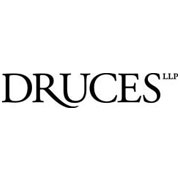
Tax traps on technology transactions | Kemp Little
Whether buying or selling a technology company, there are a number of tax traps that may arise. Below, we discuss some of the tax traps that we have come across in recent transactions.

Whether buying or selling a technology company, there are a number of tax traps that may arise. Below, we discuss some of the tax traps that we have come across in recent transactions.

It seems to be an industry dichotomy: at a time when publishers are closing established development studios – recent casualties Black Rock, Blue Tongue, Kaos and Bizarre spring immediately to mind – the number and value of acquisitions in the sector has never been higher. Farmville creator Zynga has been on a purchasing spree in …

In New Cap Reinsurance Corporation Ltd (in liquidiation) & anor v A E Grant & ors as members of Lloyd’s Syndicate 991 for the 1997 Year of Account & anor [2011], on 9 August 2011, the Court of Appeal opened up further routes for the enforcement of judgments made in foreign insolvency proceedings in England …

The recent decision of the Court of Appeal (on 28 July 2011) in the case of Philip Towers v Premier Waste Management Ltd[2011] sends out a strong message to company directors that the courts will strictly enforce their fiduciary duties. In this case, the defendant director was required to account for undisclosed personal benefits, which …
Continue reading “Breach of fiduciary duties: director digs hole for himself”

The asset value of a strong brand is now widely recognised, not just by brand owners but by investors. Over the past decade, the top 100 brands, as evaluated by the world’s largest brand consultancy Interbrand, have, year on year, shown a marked lead in financial performance over both the MSCI world index and S&P …
Continue reading “Protecting brand identity in the digital media age”

The market for multi-purpose investment vehicles in the Netherlands is well established and developed. This article sets out the key regulatory and civil law drivers in structuring multi-purpose investment vehicles.

Companies with international markets can find themselves defending product liability claims in any of the countries in which their products are sold. As sales expand into emerging markets, major brands are finding that they are increasingly vulnerable to liability exposure in obscure jurisdictions, particularly where there may be lax regulation or supply chain issues.

Business being what it is today, it always carries the risk of contracts not being fulfilled. As a result, directors and key staff are often drawn into managing and remedying issues arising out of contractual breaches or delictual situations. Given that this can result in key personnel being distracted from their strategic and, ultimately, business …